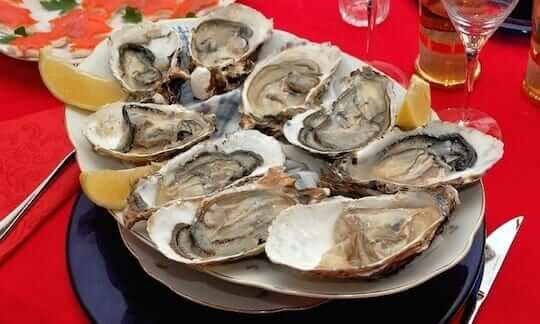Top foods with caffeine
To some, caffeine is the best thing to come out of nature but to others, it’s a dangerously addictive drug that should be avoided. There is some truth to both sides. Studies show that there are great health benefits to consuming this compound; however it can also have unwelcome side effects. It all depends on…
This post may contain affiliate links. Please read our disclosure policy.
To some, caffeine is the best thing to come out of nature but to others, it’s a dangerously addictive drug that should be avoided. There is some truth to both sides. Studies show that there are great health benefits to consuming this compound; however it can also have unwelcome side effects. It all depends on how you consume it and what you need it for. Coffee is the most popular source but there are foods with caffeine that provide sufficient doses.
If a regular cup of coffee is too strong for you, you can still get your caffeine fix from decaffeinated coffee. For years, most people thought decaf meant all traces of caffeine were eliminated but recent studies show that decaf contains lower levels of it. If you’re in need of an energy boost, you can also try green tea. Not only does it contain caffeine, it also has antioxidants that are very beneficial to your health. Black, white and oolong tea are also caffeine-rich.
Cocoa, as a drink or an ingredient, is a widely used caffeinated product. It’s in all chocolate and chocolate-flavoured products. Snacks, sweets and ice cream have cocoa as an ingredient and have varying levels of it. The healthiest among all these is dark chocolate. Cocoa has made its way into baked goods and baking products around the world. Another surprising caffeine-loaded food is soy milk, a frontrunner in a number of weight loss diets.
Although caffeine is prevalent in beverages, it can also be found in solids. Sunflower seeds in their natural state are caffeine-free and make very healthy snacks. These days, there are “energised” seeds available where they are infused with the compound for energy. Other foods with caffeine include kola nuts, frozen yoghurt and some fat-free biscuits.
Is it necessary to have caffeine in your diet? The main reason why people take it daily is for its energy-boosting capabilities. Research has also reported improvement in memory, better liver function and colon cleansing. It is used by men and women to increase stamina and taken without sugar to speed up the metabolism. It’s been said to alleviate depression and help balding men by stimulating hair growth. Other serious claims studies have made is that it can help Alzheimer patients, lessen the risk of liver disease and reduce asthmatic symptoms.
Unfortunately, with advantages come the disadvantages. Insomnia and restlessness are common complaints among those who drink more than a cup a day. It’s known to upset the stomach often and make people irritable. Unusual side effects include trembling muscles, migraines and a high blood pressure. Caffeine is not a good idea for children because it can lead to hyperactivity and difficulty in sleeping.
Taken in moderate amounts, caffeine can produce positive effects on your overall health. The bad reputation mostly comes from the absurdly-caffeinated energy and alcohol drinks in stores today. Wild branding and marketing has given the natural compound the status of a drug when in fact there are plenty of foods with caffeine that are great for your body.


Leave a Comment